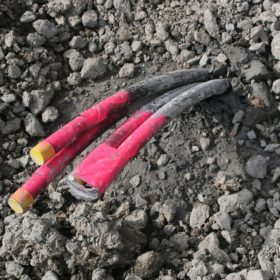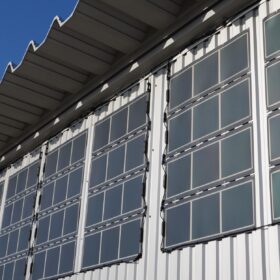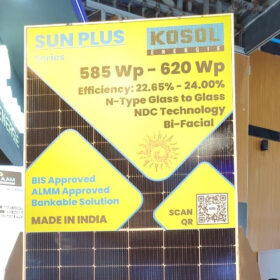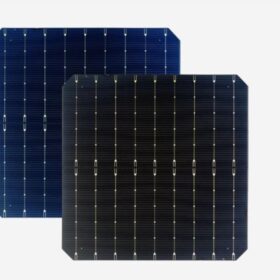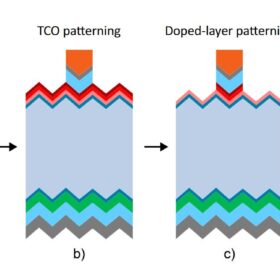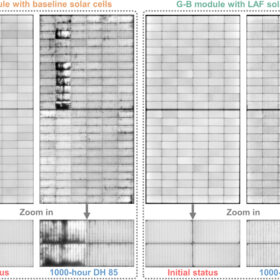Solar-air-ground CO2 heat pump system for renewables maximization
Researchers in Italy have designed a novel carbon dioxide heat pump that can work with photovoltaic-thermal energy, a finned coil heat exchanger and a U-tube borehole heat exchanger. Their experiment has shown that the simultaneous use of at least two energy sources always results in improved system performance even with limited heat transfer areas.
Aisin Corporation starts perovskite solar PV outdoor trial
The Japanese automotive components and systems manufacturer began testing its proprietary organic perovskite solar modules in what will be a 30 kW outdoor field trial at one of its facilities in Anjo.
Kosol Energie launches TOPCon solar module with 24% efficiency
The Indian manufacturer said its new n-type TOPCon bifacial solar module has a a power output of 585 W to 620 W and the same compact dimensions as a traditional 550 W panel.
Japan’s Toyo begins production at 2 GW solar cell plant in Ethiopia
Toyo Co. has started production at its 2 GW solar cell facility in Ethiopia, with plans to deliver more than 80 MW of tunnel oxide passivated contact (TOPCon) cells by the end of April before scaling capacity to 4 GW.
Solar module prices unaffected by tariff chaos
Martin Schachinger, founder of pvXchange.com, says the European PV market has remained unaffected by the disruptive effects of the Trump administration’s new tariff policy.
TU Delft researchers build 23.4%-efficient heterojunction solar cell with localized front contacts
Researchers at the Delft University of Technology have developed a top-down processing method localized the front contact in heterojunction solar cells. The new technique reportedly improves a cell’s short-circuit current density enabling higher power conversion efficiency.
Low-cost conductive quantum dot inks for photovoltaics
An international research team has developed a method to economically synthesize and stabilize conductive colloidal quantum dot inks for solar applications. When used to make quantum dot films in large area PV devices they enabled a certified efficiency of 10%, with lab-sized cells based on the ink material achieving 13.40% efficiency.
Gautam Solar presents 23.69%-efficient 640 W TOPCon solar module
The Indian manufacturer said its new TOPCon solar panel is based on rectangular bifacial solar cells and is certified by the Bureau of Indian Standards (BIS).
EVA-induced degradation has significant impact on power losses in TOPCon solar modules
New research from UNSW shows that EVA-encapsulated TOPCon solar modules under damp-heat testing can suffer significant power losses and fill factor drops. The study describes metallization degradation mechanisms driven by EVA-generated contaminants and demonstrates the effectiveness of metallization adjustments in reducing EVA-induced degradation rates
WorldOne Energies commissions 1.2 GW solar module line
WorldOne Energies has commissioned a 1.2 GW solar module manufacturing line that will produce its Supreme series n-type tunnel oxide passivated contact (TOPCon) panels.
